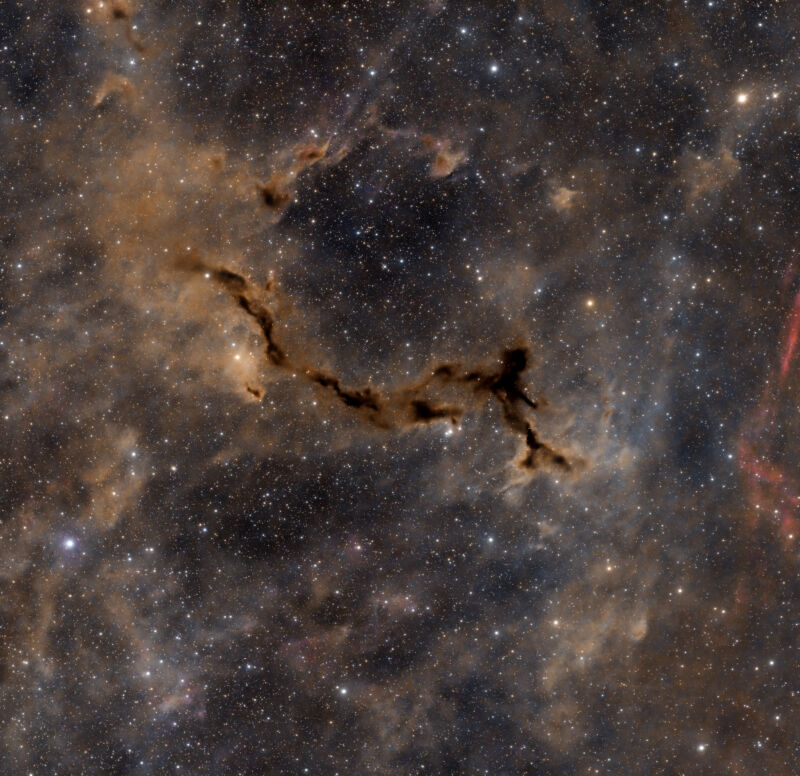Today's Technology News
November 15, 2023
Is that a seahorse or something more sinister in the sky?

Welcome to the Daily Telescope. There is a little too much darkness in this world and not enough light, a little too much pseudoscience and not enough science. We'll let other publications offer you a daily horoscope. At Ars Technica, we're going to take a different route, finding inspiration from very real images of a universe that is filled with stars and wonder.
Good morning.Today's image is something of a Rorschach test.
The photo depicts the Barnard 150 dark nebula—dark in the sense that the thick molecular clouds of this nebula obscure light coming from beyond it toward Earth. The nebula is located about 1,200 light-years from Earth and is visible in the Cepheus constellation.
Read more: Ars Technica
Google's C.E.O. Takes Another Turn on the Antitrust Witness Stand

Sundar Pichai, Google's chief executive, testified on Tuesday for the second time in two weeks to defend his company against monopoly claims.
Read more: The New York Times
WhatsApp for Android will again use Google Drive space for backups

Android users on WhatsApp won't have a free ride anymore when it comes to backups. Starting for WhatsApp beta users in December, chat history, including images and videos, will again chew away at Google Drive storage, whether you have the company's free 15GB plan or you pay for storage.
WhatsApp said the change will come to all of its Android users in the first half of 2024, and it will notify users 30 days ahead of time. The notification will be in the form of a banner in Settings > Chat > Chat backup.
Read more: The Verge
A look at some wrongful arrests in the US due to bad facial recognition matches, and how "automation bias" could lead police to ignore contradictory evidence
Too often, a facial recognition search represents virtually the entirety of a police investigation.
Read more: The New Yorker
Comments
Post a Comment